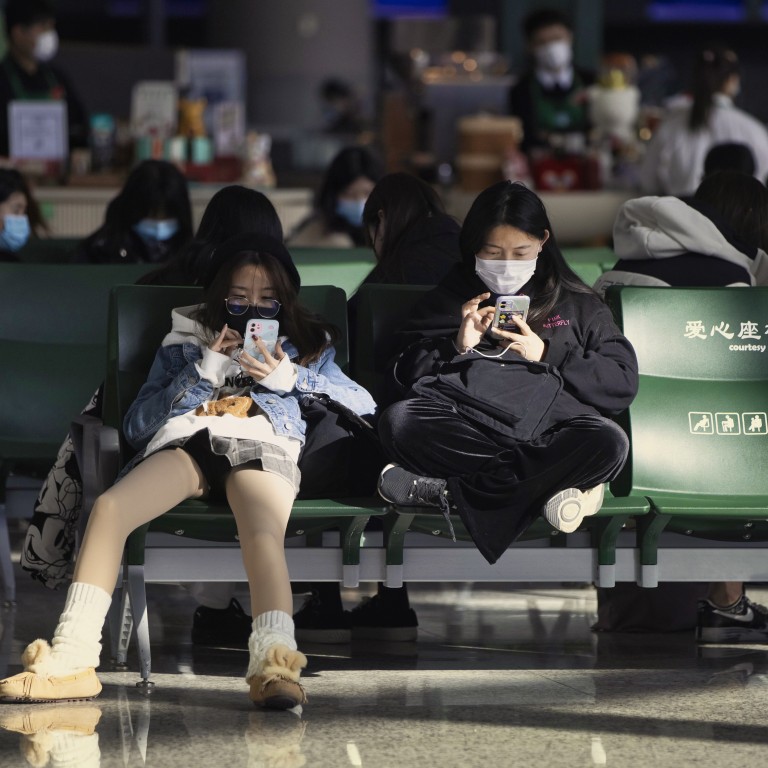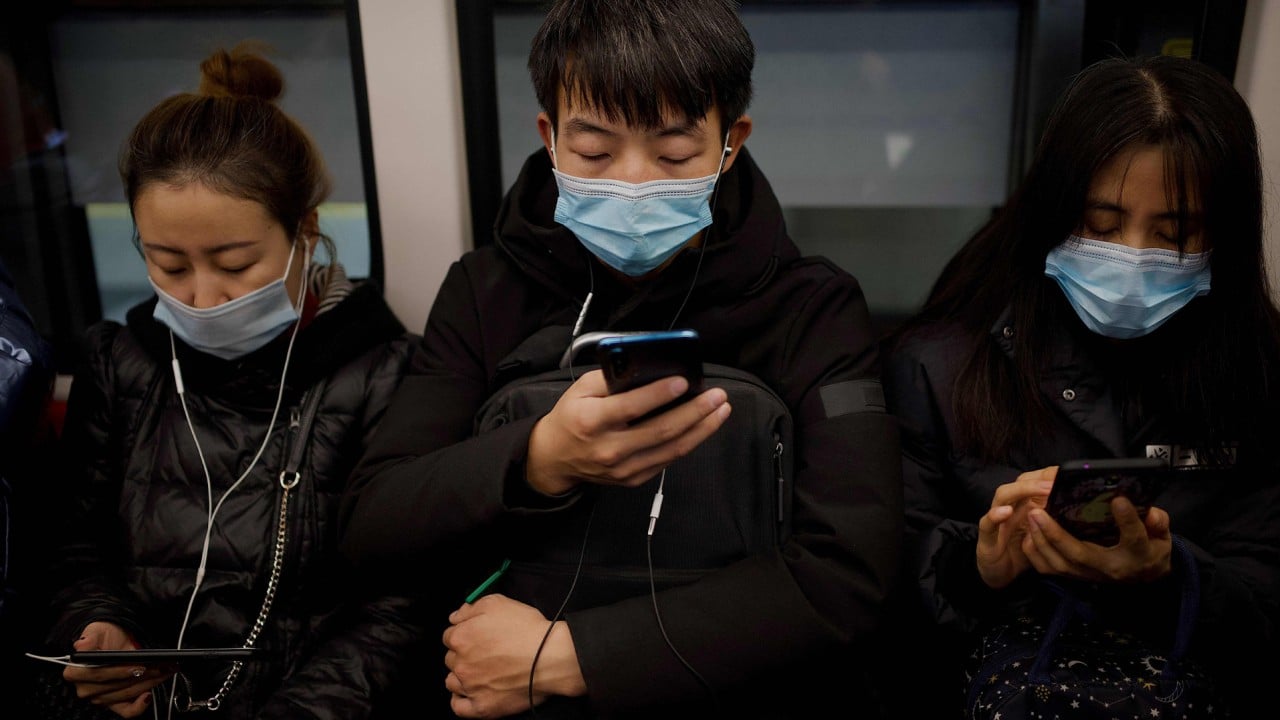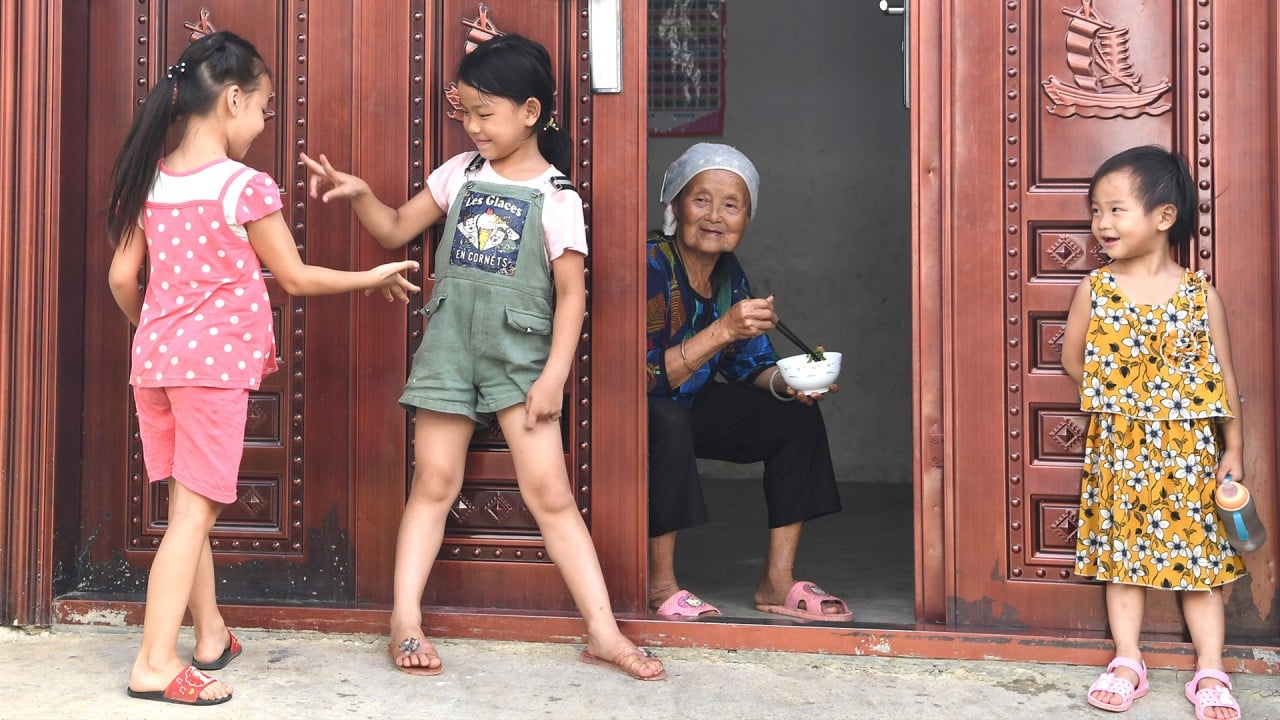
China’s GDP ‘paradox’: why young Chinese despair about future prospects despite rapid economic growth
- Young Chinese are using social media platforms like Bilibili to voice despair over rising house prices, widening inequality and the price of everyday goods
- The growing frustration about social mobility highlights a ‘serious divergence’ between China’s fast-growing economy and the life satisfaction of citizens
As vlogger Ning Nanshan stares down the camera and launches into a lecture about China’s push for technological self-reliance, a flood of “bullet comments” begins floating across the screen.
“Our motherland’s five-year plan is so awesome!” says another as it flies across the monitor.
While most of Ning’s videos trumpet China’s advancements in manufacturing, he occasionally touches on more middle class concerns, like runaway house prices. There too, the bullet comments come thick and fast – although with a very different tone.

00:56
China now has nearly 1 billion internet users
“It is impossible for house prices to fall, there is no solution to my despair,” says one user.
“Working hard is not the answer, it will not work,” reads another comment.
With few other outlets to express opinions, social media platforms like Bilibili have become important online gathering places for young Chinese. And while they can be home to dizzying displays of nationalism, they also provide brief windows into what some political analysts say is the “serious divergence” between China’s booming economy and the personal prospects of ordinary people.
“I believe young people’s confidence in the macroeconomy comes from the bottom of their hearts, because they look at it from the perspective of the central government,” said Xi Xican, an assistant professor at the School of Economics at Fudan University.
“However, when they shift roles and go back to their own life, the distress is all too real.”
For China’s leaders, the GDP figure was a “milestone” that showed the nation’s economic and technological strength. Analysts have estimated the nation will overtake the US to become the world’s largest economy by 2028, five years earlier than previously forecast.
But the impressive headline figure fails to tell the whole story. Young Chinese in particular are taking to online platforms like Bilibili or Weibo to voice despair over skyrocketing house prices, widening inequality, and the increasing price of everyday goods.
According to the E-House Real Estate Research Institute, China’s housing price-to-income reached a 20-year high of 9.2 last year – meaning the average house price is more than nine times the average income per household – despite repeated assurances from authorities they would stabilise a price boom that started in 2008.

05:06
Millions of new blue-collar jobs are piling on pressure for many workers in China
Food prices rose 1.2 per cent last year, with the cost of fresh meat increasing 7.1 per cent and the price of pork up 49.7 per cent, according to the National Bureau of Statistics (NBS). In January, vegetables prices also rose dramatically, with green peppers, wax gourd and cabbage increasing by more than 30 per cent, the Ministry of Agriculture said.
“Moderate growth? So we are the boiled frogs, and you just keep heating!” said one person on Weibo.
“How can you glorify inflation in such a way? Moderate growth means doubling the prices!” another wrote.
Wu Qiang, a political observer and an independent scholar based in Beijing, said the optimism about China’s economy on social media was mostly “Communist Party propaganda”, with many other topics out of bounds due to the nation’s vast online censorship system.
“The nationalism on Chinese media is a nihilistic statism, which is to conceal inequality through empty slogans without giving real equality and political rights to the people. This is reflected in the suffering people feel in their lives,” he said.
He said China’s strong growth under state capitalism was a “paradox” for many young people, who lacked comprehensive labour rights and work from 9am to 9pm, six days a week.
China’s relatively low household incomes and the small share of employment in the services sector also hint at the divergence between the nation’s booming economy and the life satisfaction of the average worker.
GDP per capita in China was around US$10,200 in 2019, compared to US$63,200 in the United States, according to the most recent World Bank data.
In 2019, China’s private consumption accounted for about 39 per cent of GDP, which was about 30 percentage points lower than the US and Europe, according to data from CEIC. It was also about 20 percentage points lower than developing countries such as India and Brazil.
“This means although China produces a large number of goods and services every year, the share actually consumed by its own residents is much lower than in other countries,” said professor Xi, from Fudan University.

02:47
China looks to boost its middle class as it wraps up Xi Jinping’s anti-poverty drive
Xi said his research showed the services industry made up a particularly low share of China’s GDP – more than 10 percentage points lower than developing countries like India and Brazil. Health care and education investment also made up only a small part of the total.
Generally poor public education will eventually drive up house prices in certain areas, he said, as middle class residents in first-tier cities scramble for property near good schools.
China’s Gini coefficient – a measure of inequality from 0 to 1, with 1 being perfect inequality – has been hovering between 0.46 and 0.49 over the past two decades. A level of 0.4 is usually regarded as a red line for inequality.
Even then, experts have long questioned whether China’s Gini coefficient has been underestimated. Last year, Premier Li Keqiang said the nation had 600 million people living on a monthly income of 1,000 yuan, which is barely enough to cover monthly rent in a mid-sized Chinese city.
This brings us back to an old question in economics and political science: what is the ultimate purpose of our economic development?
Research published by Hao Qi at the School of Economics at Renmin University in November last year showed that the labour share of China’s national income – the amount of GDP paid out in wages, salaries, and benefits – declined from 51.4 per cent in 1995 to 43.7 per cent in 2008. It has remained around 40 per cent over the past few years.
The labour share of income in 35 advanced economies fell from around 54 per cent in 1980 to 50.5 per cent in 2014, report by McKinsey in 2019.
The figures highlight that investment returns are being concentrated in the hands of a few, and most workers are getting a lower share of GDP growth than those in developed countries, Xi said.
“This brings us back to an old question in economics and political science: what is the ultimate purpose of our economic development?” said Xi
“Is it for better looking GDP figures, or is it for people’s sense of access and satisfaction?”

